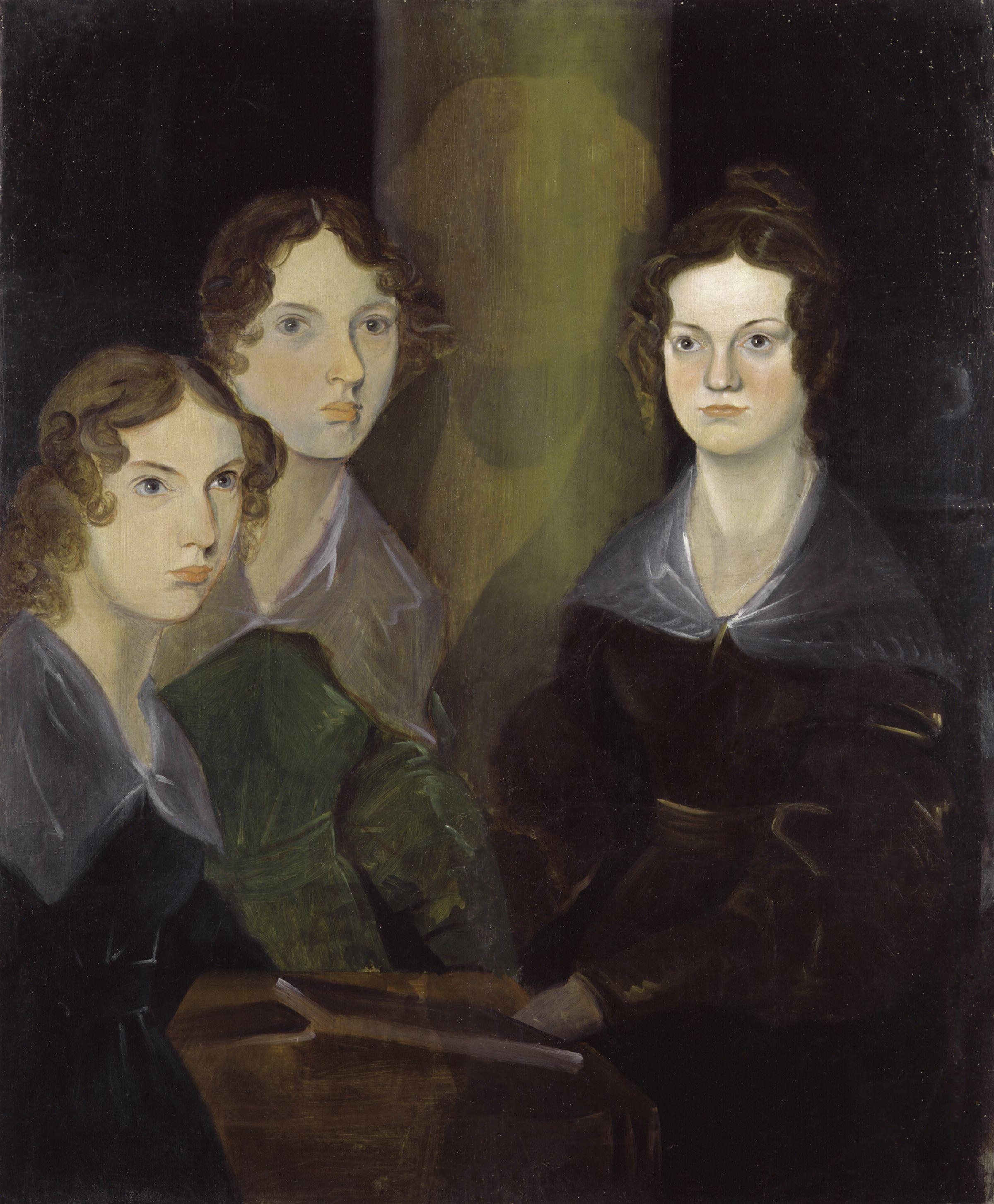

Queer Places:
Brontë Parsonage Museum, Church Street, Haworth, Haworth, Keighley BD22 8DR, UK
St Michael & All Angels, 125 Main St, Haworth, Keighley BD22 8DR, UK
 Emily
Jane Brontë (30 July 1818 – 19 December 1848)[3]
was an English novelist and poet who is best known for her only novel,
Wuthering Heights, now considered a classic of English literature. Emily
was the third-eldest of the four surviving Brontë siblings, between the
youngest Anne and her brother Branwell. She published under the pen name Ellis
Bell.
Emily
Jane Brontë (30 July 1818 – 19 December 1848)[3]
was an English novelist and poet who is best known for her only novel,
Wuthering Heights, now considered a classic of English literature. Emily
was the third-eldest of the four surviving Brontë siblings, between the
youngest Anne and her brother Branwell. She published under the pen name Ellis
Bell.
For years, she was painted as the eternally ignorant, virginal Brontë sister, but with the 1983 publication of Emily Brontë: Heretic by Stevie Davies a new conversation was opened up about the possibility that Emily was simply uninterested in relationships with men. In the book, Davies asserts her belief that Emily was in fact a lesbian and discusses her close relationship with a schoolmate from the time she was in Brussels, named Louise (or according to other scholars Léonie) de Bassompierre and her possible connection to the famous lesbian aristocrat Anne Lister. Had sickness not overtaken Emily, the truth may have been clearer, but her premature death at the age of 30 on December 19, 1848 would prevent the world from knowing any more of her dreams, plans, or creative capabilities.
Emily's health was probably weakened by the harsh local climate and by unsanitary conditions at home,[64] the source of water being contaminated by runoff from the church's graveyard.[c] Branwell died suddenly, on Sunday, September 24, 1848. At his funeral service, a week later, Emily caught a severe cold which quickly developed into inflammation of the lungs and led to tuberculosis.[65][d] Though her condition worsened steadily, she rejected medical help and all offered remedies, saying that she would have "no poisoning doctor" near her.[67] On the morning of 19 December 1848, Charlotte, fearing for her sister, wrote this:
She grows daily weaker. The physician's opinion was expressed too obscurely to be of use – he sent some medicine which she would not take. Moments so dark as these I have never known – I pray for God's support to us all.[68]
At noon, Emily was worse; she could only whisper in gasps. With her last audible words she said to Charlotte, "If you will send for a doctor, I will see him now"[69] but it was too late. She died that same day at about two in the afternoon. According to Mary Robinson, an early biographer of Emily, it happened while she was sitting on the sofa.[70] However, Charlotte's letter to William Smith Williams where she mentions Emily's dog, Keeper, lying at the side of her dying-bed, makes this statement seem unlikely.[71]
It was less than three months since Branwell's death, which led Martha Brown, a housemaid, to declare that "Miss Emily died of a broken heart for love of her brother".[72] Emily had grown so thin that her coffin measured only 16 inches wide. The carpenter said he had never made a narrower one for an adult.[73] She was interred in the Church of St Michael and All Angels family vault in Haworth.
My published books: